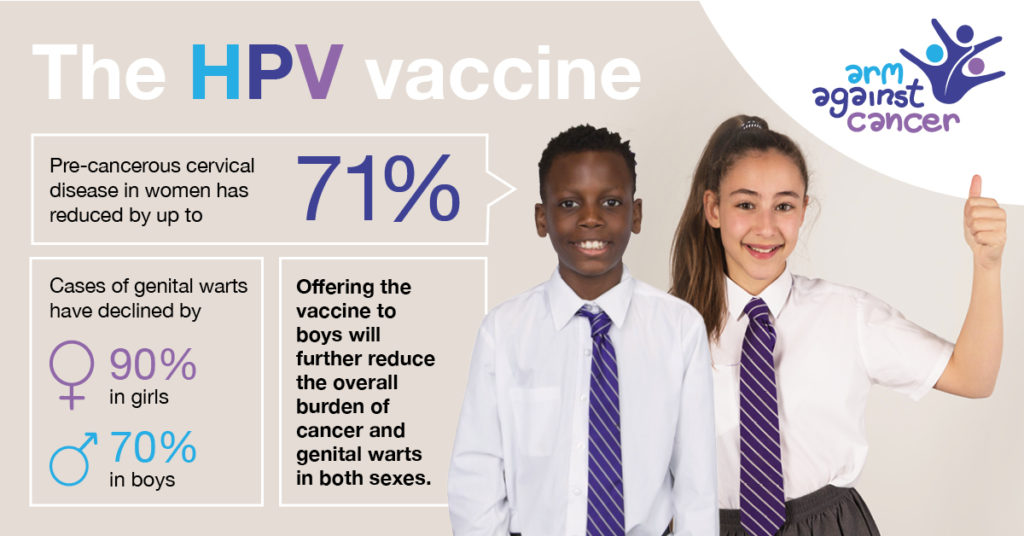
The human papillomavirus is very common and it is caught through intimate skin-to-skin and sexual contact with another person who already has it. Because it is a very common infection, most people will get it during their lifetime. There are many different types of HPV. Most HPV infections do not cause any symptoms and get better on their own. Some types do not clear up and can lead to cancer whilst others cause genital warts.
The human papillomavirus increases the risk of developing some cancers in later life including cervical cancer (cancer of the entrance to the womb), some mouth and throat cancers and some cancers of the anus and genital area. HPV causes more than 99% of all cervical cancer, the most common cancer among women under the age of 35. Most vaginal, vulval, penile and anal cancers are also caused by HPV.
The HPV vaccine protects against high risk HPV types that cause cancer including most cases (around 90%) of cervical cancer. Having this vaccine will also protect you against the 2 types of HPV that cause the majority of cases of genital warts. There is evidence from Australia, Denmark, Scotland and England that the vaccine is already having a major impact on HPV infections.
The HPV vaccine has been used in girls in the UK since 2008 and most women aged 15 to 24 years have now been given the vaccine. From September 2019, the vaccine has been offered to boys and girls aged 12 and 13 years. The vaccine protects boys against some kinds of cancer too and will stop them from passing on HPV to their future partners. It won’t protect you against any other sexually transmitted diseases such as chlamydia and it won’t stop you getting pregnant.
The HPV vaccine is offered to everyone starting in school year 8 (aged 12 to 13 years) and those offered the vaccine at school will remain eligible up to their 25th birthday. If you missed your vaccination, for whatever reason, you should speak to your school nurse (if you’re age 12-13) or GP surgery (if you’re age 14-24) about making another appointment. It’s best to make your appointment as soon as possible after your original one.

